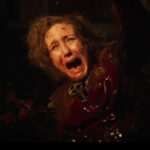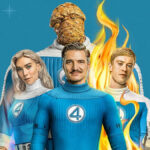Fight Club is a cult classic that has captivated audiences since its release in 1999. Directed by David Fincher and starring Edward Norton and Brad Pitt, this dark psychological thriller delves into themes of masculinity, consumerism, and anarchism. The film follows an unnamed narrator (Norton) who forms an underground fight club with the charismatic Tyler Durden (Pitt), which evolves into a radical anti-capitalist movement.
If you’re a fan of Fight Club‘s gritty style, mind-bending plot, and social commentary, here are 20 other movies that are sure to appeal:
1. Taxi Driver (1976)
Directed by Martin Scorsese and starring Robert De Niro, Taxi Driver is a neo-noir psychological thriller that explores themes of alienation, vigilantism, and the dark underbelly of New York City. De Niro plays Travis Bickle, a mentally unstable Vietnam War veteran who works as a nighttime taxi driver. Disgusted by the crime and depravity he witnesses, Bickle becomes increasingly unhinged and decides to take violent action.
Like Fight Club, Taxi Driver offers a raw, unflinching look at a man’s descent into madness and the societal factors that contribute to it. Both films also feature unreliable narrators and shocking bursts of violence.
2. American Psycho (2000)
Based on the controversial novel by Bret Easton Ellis, American Psycho is a black comedy that satirizes yuppie culture and consumerism in the 1980s. Christian Bale stars as Patrick Bateman, a wealthy investment banker who leads a double life as a serial killer. The film blends horror and humor to create a disturbing portrait of a man obsessed with status and superficiality.
American Psycho shares Fight Club‘s critique of materialism and conformity, as well as its depiction of a split personality. Both protagonists rebel against societal expectations in destructive ways.
3. Memento (2000)
Christopher Nolan’s mind-bending neo-noir thriller follows Leonard Shelby (Guy Pearce), a man with anterograde amnesia who is searching for his wife’s killer. The film is told in reverse chronological order, with black-and-white sequences alternating with color sequences.
Like Fight Club, Memento keeps the audience guessing with its nonlinear structure and unreliable narrator. Both films explore the fragmented nature of memory and identity.
4. Requiem for a Dream (2000)
Darren Aronofsky’s harrowing drama depicts the devastating effects of drug addiction on four individuals: Harry (Jared Leto), his girlfriend Marion (Jennifer Connelly), his friend Tyrone (Marlon Wayans), and his mother Sara (Ellen Burstyn). As their addictions spiral out of control, their lives unravel in increasingly disturbing ways.
Requiem for a Dream shares Fight Club‘s bleak outlook on modern society and its unflinching portrayal of self-destruction. Both films use jarring visuals and sound design to convey their characters’ psychological states.
5. Donnie Darko (2001)
Richard Kelly’s mind-bending sci-fi thriller follows Donnie Darko (Jake Gyllenhaal), a troubled teenager who narrowly escapes death when a jet engine crashes into his bedroom. Donnie begins having visions of a man in a rabbit suit named Frank, who tells him the world will end in 28 days.
Like Fight Club, Donnie Darko blurs the line between reality and delusion, leaving the audience to question what is real. Both films also feature charismatic but unstable protagonists who rebel against societal norms.
6. Oldboy (2003)
Park Chan-wook’s twisted revenge thriller follows Oh Dae-su (Choi Min-sik), a man who is kidnapped and imprisoned for 15 years without explanation. When he is finally released, he embarks on a violent quest for vengeance against his captors.
Oldboy shares Fight Club‘s dark, stylized aesthetic and its exploration of masculinity and violence. Both films also feature shocking plot twists that upend the audience’s expectations.
7. Eternal Sunshine of the Spotless Mind (2004)
Michel Gondry’s inventive romantic drama follows Joel (Jim Carrey) and Clementine (Kate Winslet), a couple who erase each other from their memories after a painful breakup. As Joel undergoes the procedure, he relives their relationship in reverse, realizing he wants to hold onto the memories.
Like Fight Club, Eternal Sunshine plays with narrative structure and the malleability of memory. Both films also explore the lengths people will go to escape pain and reinvent themselves.
8. A Scanner Darkly (2006)
Richard Linklater’s animated sci-fi thriller, based on the novel by Philip K. Dick, is set in a dystopian future where a powerful new drug called Substance D is sweeping the nation. Keanu Reeves stars as Bob Arctor, an undercover cop who becomes addicted to the drug while trying to infiltrate its distribution network.
A Scanner Darkly shares Fight Club‘s paranoid, hallucinatory atmosphere and its critique of consumer culture. Both films also feature protagonists with fractured identities struggling against oppressive systems.
9. The Machinist (2004)
Brad Anderson’s psychological thriller stars Christian Bale as Trevor Reznik, a factory worker suffering from severe insomnia and weight loss. As Trevor’s mental state deteriorates, he becomes increasingly paranoid and starts to question his own sanity.
Like Fight Club, The Machinist keeps the audience guessing about what is real and what is imagined. Both films also feature physically transformed protagonists whose appearances reflect their psychological states.
10. American Beauty (1999)
Sam Mendes’ acclaimed drama follows Lester Burnham (Kevin Spacey), a middle-aged man who becomes disillusioned with his suburban life and develops an infatuation with his teenage daughter’s best friend. As Lester rebels against societal expectations, his family unravels in darkly comedic ways.
American Beauty shares Fight Club‘s satirical take on conformity and consumerism, as well as its exploration of masculinity in crisis. Both films also feature narrators who reject the status quo in pursuit of authenticity.
11. Trainspotting (1996)
Danny Boyle’s kinetic black comedy follows a group of heroin addicts in Edinburgh, Scotland, centering on Mark Renton (Ewan McGregor) as he tries to kick his habit and escape his dead-end life. The film depicts the highs and lows of addiction with equal parts humor and horror.
Like Fight Club, Trainspotting offers a gritty, stylized look at a subculture operating outside of mainstream society. Both films also feature morally ambiguous protagonists who reject conventional values.
12. The Game (1997)
David Fincher’s twisty thriller stars Michael Douglas as Nicholas Van Orton, a wealthy investment banker who receives a mysterious gift from his estranged brother: a voucher for a “game” that promises to change his life. As Nicholas becomes increasingly entangled in the game’s sinister plot, he starts to question what is real and what is part of the elaborate ruse.
The Game shares Fight Club‘s mind-bending plot and its exploration of masculinity and power. Both films also keep the audience guessing until the very end.
13. Shutter Island (2010)
Martin Scorsese’s atmospheric psychological thriller, based on the novel by Dennis Lehane, stars Leonardo DiCaprio as Teddy Daniels, a U.S. Marshal investigating a disappearance at a remote mental hospital. As Teddy delves deeper into the mystery, he starts to question his own sanity and the true nature of the hospital.
Like Fight Club, Shutter Island blurs the line between reality and delusion, keeping the audience off-balance with its twists and turns. Both films also explore the fragmented nature of identity and memory.
14. The Usual Suspects (1995)
Bryan Singer’s neo-noir crime thriller follows a group of criminals who are brought together for a police lineup and decide to pull off a heist together. The film is narrated by Roger “Verbal” Kint (Kevin Spacey), a con artist who recounts the events leading up to a massacre on a boat.
The Usual Suspects shares Fight Club‘s unreliable narrator and its exploration of the blurred lines between truth and fiction. Both films also feature shocking plot twists that recontextualize everything that came before.
15. Mulholland Drive (2001)
David Lynch’s surreal neo-noir follows Betty Elms (Naomi Watts), an aspiring actress who arrives in Los Angeles and befriends an amnesiac woman (Laura Harring) who is searching for her identity. As the two women investigate the mystery, they descend into a dreamlike world of doppelgangers and shifting realities.
Like Fight Club, Mulholland Drive challenges the audience’s perception of reality and features a fragmented, nonlinear narrative. Both films also explore the dark underbelly of a glamorous facade.
16. Reservoir Dogs (1992)
Quentin Tarantino’s debut feature follows a group of criminals whose planned heist goes wrong, leading them to suspect that one of their own is an undercover cop. The film is told in a nonlinear style, with flashbacks revealing each character’s backstory and motivations.
Reservoir Dogs shares Fight Club‘s gritty, masculine aesthetic and its exploration of loyalty and betrayal among thieves. Both films also feature shocking bursts of violence and dark humor.
17. Pi (1998)
Darren Aronofsky’s surreal psychological thriller follows Max Cohen (Sean Gullette), a brilliant mathematician who becomes obsessed with finding patterns in the stock market and unlocking the secrets of the universe. As Max’s obsession deepens, he starts to lose his grip on reality and becomes entangled with a mysterious Kabbalah sect.
Like Fight Club, Pi features a mentally unstable protagonist who becomes consumed by a radical ideology. Both films also use jarring visuals and sound design to convey their characters’ psychological states.
18. Bringing Out the Dead (1999)
Martin Scorsese’s dark comedy stars Nicolas Cage as Frank Pierce, a burnt-out paramedic working the graveyard shift in New York City. Over the course of three increasingly surreal nights, Frank grapples with his own mortality and the futility of his job as he encounters a series of bizarre characters and situations.
Bringing Out the Dead shares Fight Club‘s dark, absurdist humor and its exploration of masculinity in crisis. Both films also offer a gritty, stylized look at the underbelly of urban life.
19. Gone Girl (2014)
David Fincher’s twisty thriller, based on the novel by Gillian Flynn, follows Nick Dunne (Ben Affleck), a man who becomes the prime suspect in the disappearance of his wife, Amy (Rosamund Pike). As the media circus surrounding the case intensifies, dark secrets about the couple’s marriage come to light.
Like Fight Club, Gone Girl features an unreliable narrator and keeps the audience guessing with its shifting perspectives and plot twists. Both films also offer a dark, satirical take on modern relationships and media culture.
20. Mr. Robot (2015-2019)
While not a movie, this acclaimed TV series shares many thematic and stylistic similarities with Fight Club. Rami Malek stars as Elliot Alderson, a brilliant but mentally unstable hacker who joins an underground hacker group called “fsociety” with the goal of taking down corporate America.
Like Fight Club, Mr. Robot offers a scathing critique of capitalism and conformity, as well as an exploration of masculinity and mental illness. Both works also feature unreliable narrators and mind-bending plot twists that keep the audience guessing.
Conclusion
If you’re a fan of Fight Club‘s dark, subversive style and thought-provoking themes, these 20 movies (and one TV show) are sure to scratch that itch. From gritty crime thrillers to surreal psychological dramas, these works offer a similar blend of style, substance, and social commentary. So grab some popcorn, dim the lights, and prepare to have your mind blown.





